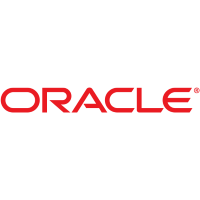
Babcock International Group PLC
LSE:BAB


| US |

|
Oracle Corp
NYSE:ORCL
|
Technology
|
| US |

|
Hershey Co
NYSE:HSY
|
Food Products
|
| US |

|
CVS Health Corp
NYSE:CVS
|
Health Care
|
| LU |

|
Spotify Technology SA
NYSE:SPOT
|
Media
|
| US |

|
Arch Resources Inc
NYSE:ARCH
|
Energy
|
| US |

|
Nike Inc
NYSE:NKE
|
Textiles, Apparel & Luxury Goods
|
| CN |

|
Alibaba Group Holding Ltd
NYSE:BABA
|
Retail
|
| US |

|
3M Co
NYSE:MMM
|
Industrial Conglomerates
|
| US |

|
Comstock Resources Inc
NYSE:CRK
|
Energy
|
| US |

|
Verizon Communications Inc
NYSE:VZ
|
Telecommunication
|
| CN |

|
JinkoSolar Holding Co Ltd
NYSE:JKS
|
Semiconductors
|
| US |

|
CONSOL Energy Inc
NYSE:CEIX
|
Energy
|
| US |

|
Peabody Energy Corp
NYSE:BTU
|
Energy
|
| IL |

|
Nano Dimension Ltd
NASDAQ:NNDM
|
Technology
|
| US |

|
Booking Holdings Inc
NASDAQ:BKNG
|
Hotels, Restaurants & Leisure
|
| US |

|
Netflix Inc
NASDAQ:NFLX
|
Media
|
Utilize notes to systematically review your investment decisions. By reflecting on past outcomes, you can discern effective strategies and identify those that underperformed. This continuous feedback loop enables you to adapt and refine your approach, optimizing for future success.
Each note serves as a learning point, offering insights into your decision-making processes. Over time, you'll accumulate a personalized database of knowledge, enhancing your ability to make informed decisions quickly and effectively.
With a comprehensive record of your investment history at your fingertips, you can compare current opportunities against past experiences. This not only bolsters your confidence but also ensures that each decision is grounded in a well-documented rationale.
Do you really want to delete this note?
This action cannot be undone.

| 52 Week Range |
385
565.5
|
| Price Target |
|
We'll email you a reminder when the closing price reaches GBX.
Choose the stock you wish to monitor with a price alert.

|
Oracle Corp
NYSE:ORCL
|
US |

|
Hershey Co
NYSE:HSY
|
US |

|
CVS Health Corp
NYSE:CVS
|
US |

|
Spotify Technology SA
NYSE:SPOT
|
LU |

|
Arch Resources Inc
NYSE:ARCH
|
US |

|
Nike Inc
NYSE:NKE
|
US |

|
Alibaba Group Holding Ltd
NYSE:BABA
|
CN |

|
3M Co
NYSE:MMM
|
US |

|
Comstock Resources Inc
NYSE:CRK
|
US |

|
Verizon Communications Inc
NYSE:VZ
|
US |

|
JinkoSolar Holding Co Ltd
NYSE:JKS
|
CN |

|
CONSOL Energy Inc
NYSE:CEIX
|
US |

|
Peabody Energy Corp
NYSE:BTU
|
US |

|
Nano Dimension Ltd
NASDAQ:NNDM
|
IL |

|
Booking Holdings Inc
NASDAQ:BKNG
|
US |

|
Netflix Inc
NASDAQ:NFLX
|
US |
This alert will be permanently deleted.
 Babcock International Group PLC
Babcock International Group PLC






 You don't have any saved screeners yet
You don't have any saved screeners yet

Ladies and gentlemen, welcome to the Babcock conference call. My name is Mia, and I will be the operator for your call this morning. [Operator Instructions] I will now hand over to Archie Bethel. Please go ahead.
Good morning, and thank you for joining the call. I'm Archie Bethel, Group Chief Executive; and I have Franco Martinelli, our Group Financial Director with me.You have read our trading statement and notice that we are confirming our previous guidance on underlying earnings, cash flow and net debt. However, as we explain in the trading statement, we are now forecasting organic revenue growth to soften to low single-digit growth for the year, including the planned step-down in aircraft carrier revenues, which represents about 2% of Group revenue. So what's changed in the last couple of months? Well, nothing really to report in our Aviation and Nuclear sectors. But in the Marine and Land sectors, we are forecasting lower revenues due to 2 factors, one positive and the other not so positive. The first is a positive and relates to the management action being taken to streamline our business portfolio. At the end -- at the year-end, we emphasized that going forward our focus would be on the 3 main markets, Defense, Emergency Services and Nuclear, that drive 75% of our business. And we are now exiting those business lines that do not form part of these 3 core markets, where it makes financial sense, of course. To comment the charts quickly on this, and during the first half of the year, we will exit 2 small low-margin business lines in construction in North America and power lines in South Africa, and we expect to dispose of a further 3 small noncore businesses as the year progresses. These exits and disposals are mainly in the Land sector, and although they have a 1% negative impact on revenue, we expect to see a positive impact on sector profit margins. The second factor relates to temporary program delays in a couple of areas of our Defense business. On the 23rd of April, the Submarine Development Agency (sic) [ Submarine Delivery Agency ] now operates separately from Defense Equipment & Support. Following the separation, both agencies are carrying out reviews of their short- and medium-term spend programs as they begin their new lives. In the last week or so, we've been told that a small number of nonprogram, noncritical path activities with a total value of around GBP 70 million could possibly be delayed from this year into next, impacting both our Naval and Marine business and in the low-margin equipment procurement activity of the Land and Defense business. Again though, I would like to stress that although these minor delays are annoying, what they definitely don't do is signal a broader slowdown in our U.K. Defense business. Looking forward, more than 4/5ths of revenue is now in place for FY '19. The order book of signed contracts remains steady, while the bid pipeline has increased by GBP 1 billion since the year-end to around GBP 14 billion, largely due to further opportunities, particularly in the Marine sector. So let me briefly go through the divisional highlights. Marine continues to trade strongly, with no major developments since the year-end results other than the temporary slowdown in a few areas of their noncritical submarine program. The aircraft carrier build program is stepping down as planned and has entered its final phase with less than 5% of the project value to be spent. The planned step-down in aircraft carrier revenues and the temporary delays discussed earlier and in the trading statement will result in revenues being flat for the full year. Land, as discussed earlier, has focused on exiting a number of small noncore low-margin businesses and is making really good progress following our decision to focus on our 3 core markets. We are disappointed that the lower-than-planned volumes have passed through equipment procurement within the Defense area has continued from last year, but we are beginning to see activity increasing, and we have recently been awarded a new GBP 10 million a year equipment supply contract extension to our DSG contract.The disposals and exit combined with lower-than-expected equipment procurement volumes will reduce revenue in Land but will mean higher margins going forward. In Air and Nuclear, there have been no significant changes since the beginning of the financial year; and our guidance for both sectors remains unchanged, with a still forecasting of positive cash impact from the FOMEDEC contract, as previously indicated. Overall, we continue to make good progress across the Group, taking early positive action to focus on our core markets, which remains strong and critical to our customers. And on a year-on-year, like-for-like basis, the underlying revenue growth is still mid-single digit, particularly if you add back the aircraft carrier step-down. In U.K. Defense, we continue to be closely involved in industry elements of the modernization -- modernizing defense program, and I'm sure that the temporary slowdown affecting the few noncritical activities I have discussed earlier is related solely to the forming and reshaping of the 2 main defense procurement agencies as opposed to being an impact of the broader NDP. And finally, even with the impact of the issues I have discussed, I remain confident that we will achieve our main targets of earnings per share growth, balance sheet deleveraging and the improving returns on investment for the current financial year. Now I'll stop there and pass over to you for questions. Do we have a question?
[Operator Instructions] The first question is from the line of Edward Donahue with One Investment.
A couple, if I may. It's just with regard to the statement on Defense. If you stripped out the submarine agency impact, what is -- and the Aircraft slowdown, what are you actually looking at overall revenue growth within that, let's call it, subsector of the rest of the Defense, and especially on Marine? And then just with regard to maybe a slight shortfall of the revenue, is there any utilizational risk on what would actually happen with regard to margins for the first half?
Okay. As Archie said earlier, the Marine revenue overall we'll be forecasting for flat for the year, so GBP 70 million of the Marine revenue, which is about GBP 1.7 billion, GBP 1.8 billion. So you just need to take the GBP 90 million on that, so that would be the difference. So that, plus the GBP 90 million step down in QEC, means that the rest of the Marine business would be growing at 5%, 6%, basically.
Okay. And then with regard to...
And on the underutilization -- sorry, on the underutilization, Archie, do you want to take that or [indiscernible]?
I wasn't sure what you were meaning there.
I don't think it creates an underutilization issue. The contracts are -- these were growth contracts that would have been extra volume that would have come through as opposed to the existing contracts. So it's not underutilization, it's a growth thing.
Right. And just if I may, one quick last one. Have those agencies undertaken the full review as far as you could analyze that they would within the scope? Or is there potentially further tail risk element in this?
We understand from what they've done is it's unlikely to more -- it was a fairly quick exercise. The agencies did spend almost 12 months separating to get that [ stock ] as it currently is, and that just more a review just of the budget spend and year to make sure that they basically had all the funds in place for all the different programs. So probably not surprisingly, they monitor that budget quite closely. And as I say, they indicated to us a bit annoyingly because we think that could have been signaled to us earlier. But in discussions last week, it became clear that there was a number of these programs, mainly around about the noncritical areas of the submarine program that they were pushing back to next year.
The next question is from the line of Sam Bland with JP Morgan.
I was hoping you could just maybe elaborate a little bit more on, I think you said, you've done 2 disposals, there are maybe 3 more left to come. Just talk a little bit how material are they in terms of consideration you might expect for them. And then, I maybe presume they're not particularly material, and that's why you're sticking with the 1.4x leverage target for the full year? And then kind of linked to that there's another, let's say, 25% of revenue out of -- outside of the 3 core areas, just talk about how much of that may be eligible for disposal over time. Or you've got to do something with it because it doesn't quite fit right in the group?
Okay, right. Thanks, Sam. Right, on this year's disposal, I mean, it really is tidying up stuff, so it's small. I think we've said overall it's about 1% of the turnover, so it's not huge amount, but it's a tidy up we think is needed. They will be self-financing. These are not -- the disposals are not large, but there will be some value created from them. And we will have some exiting costs in some areas, so we're not expecting that. We expect -- we're planning on that as being a neutral exercise. On the 25%, the 3 big businesses in that, I think, as we talked again about at the year-end, are the South African business, the Rail business in the U.K. and the offshore oil and gas business and the helicopter area in Aviation. That's the bulk. That's 24% of the part. We are not planning on any major action on either of these -- on any of these 3. Two of them, South Africa and Rail, are good contributors to our profit and cash flow. So we are not rushing to do something there, although, again, as we have signaled before, if there's an opportunity to do something, we will. The oil and gas business is stable at the moment. It has its order book for this year. The margins are not where we would like them to be through competitive pressure. And yes, that's probably one area that over the next year or so we will make a decision on how we exit that business. None of these are involved in these little small ones that we've kind of talked about this year.
And of the sort of, let's say, 24%, is oil and gas -- roughly, of that 24%, how large is oil and gas?
Well, the oil and gas business -- yes, it's about GBP 180 million turnover is the oil and gas helicopter business. It's just the smallest of the 3 in terms of turnover, just about GBP 180 million.
Next question is from the line of Kean Marden with Jefferies.
If I can just ask just a quick question about how to bridge the swing factors for EBIT. So if we just park margins to one side for the moment. I guess if we have our revenue shortfall and put that on a sort of group EBIT margin, then we're looking at sort of GBP 5 million to GBP 10 million worth of EBIT shortfall relative to expectations a couple of months ago. Where -- can you just help us understand where the offset comes from? So obviously, we can work through mix factors from noncore asset disposals. We can look through the low-margin procurement expenditure as well, but again, that's more of a mix factor because the absolute EBIT is quite low. So just, if we are looking at earnings guidance for the full year remaining unchanged, what's the offset in that GBP 5 million to GBP 10 million of EBIT shortfall?
Okay. Well I'll start and maybe get Franco to say a bit more. But it's based on I think 3 big contributing factors if the [indiscernible] stays the same. The first is that the reduced volume is mainly coming in lower-margin businesses. So the Defense procurement business -- the defense procurement in the Land side as we said last year is a pass-through, almost 0 margin. And then the businesses that we're getting out of, again, the main reason why they're not core is because the margins are really low. So they do have an impact on the mix. So there's a factor coming in from there. I think are the 2 other things that we're doing. When looking at the first half of the year and looking at the first quarter, we have seen improvement in contract performance in a number of areas across -- and Aviation are performing on some of the contracts. Marine are in other parts of their contracts, and so is Nuclear. So we've got a kickup in improvement that we're looking at in contract performance, which is allowing us to step up in that area too. And then, as we always have every year, we've got a huge contingent drive for efficiencies across the group, so we have an ongoing program that runs that we call [ Project Jim ]. It looks at always trimming excess overheads. In the last 6 or 8 months, we have -- we've downsized the workforce in certain areas, streamlined. So we're seeing benefits of all that coming through, and that still continues to improve this year. So when you take these 3 main factors into account, we come back to the -- we're making up basically the loss of EBIT that would have come from this GBP 70 million of Defense [ walkout ]. Franco?
Yes. One other factor. Obviously, the 3 areas would have been growth areas, and they wouldn't necessarily have started off with the higher margins. So in our plans, they were never in a higher margin in the first place. So it's more towards the bottom end of your spectrum of the number that you said those would have lost revenue than in the top end. Because as you know, I mean, as we start projects, we start with margins low and build. So that's part of the reason why -- another reason.
Next question is from the line of Andrew Gibb from RBC.
Actually, Kean's just asked my question, so I'll get back to you guys.
The next question is from the line of Allen Wells with Exane.
A couple from me. So can I just sort of touch on the cash flow impact. I mean obviously you talk about no change there. Does that no change include the income from the disposals, I assume, offsetting obviously the negatives from lower activity? And then maybe if you -- if it does and you strip out the proceeds from disposals, how do you think about the underlying impact, i.e., it sounds there's some procurement slowdown in there I would expect to maybe slightly positive for cash flow? I mean, anything you could add that would be great. And then also just following on from that, can you give us any guidance on how to think about expected proceeds from the disposals, either what you'd expect roughly for the full year or what you sold already? And then second question, just on the pipeline. Your pipeline went up by GBP 1 billion, mostly Marine, it looks like. Can you give us any insight into what the main moving parts, main additions are in there?
Okay, right. I'll come back to you and let Franco answer on the cash, so he can think while I talk about the pipeline. Yes, I mean, the GBP 1 billion up in pipeline is basically 2 big opportunities. One is a project called Selborne. It's a naval training program which has just started a process. So that's a significant bid that we'll work up through this year and covers the training that we already do under our [ full-app ] contract but has a much bigger, bigger scope. That's the biggest part. And the second part relate -- the second other major part in there, again, is -- relates to Devonport infrastructure works for future submarine programs. Again, the 2 of these combined is about GBP 1 billion. Franco, do you want to?
Yes. On the disposals, sorry, I'm not going to give guidance on the ones that are in the future. But in terms of -- but they're -- I expect them to be small. I expect them to be not significant in terms of cash generation that we get. And I expect to have some exit costs to do it. So if I put those together, I don't think it's going to change very much. I think if you figure in disposal proceeds as sort of towards 20 in total. I think that might be the right sort of number.
And the other factors around the nondisposal proceeds and why the cash doesn't change, bearing in mind the activity comes down?
Well, the activity may come down, but I think overall the procurement revenue is pretty cash neutral. There's no margin but no working capital. So I don't think that really makes any difference. I think the growth in the Aviation business, which is strong, is the area where working capital is required, and that hasn't changed. So I think that's the key driver. If anything, Aviation is reconfirmed at above 10% growth.
But just to confirm, the no change in cash flow guidance includes the proceeds from disposals offsetting any marginal negatives from the lower activity, yes?
It's all-in, correct.
The next question is from the line of Ed Steele with Citi.
It's Ed here from Citi. Just wanted to understand about the margin guidance for the full year. I think at that prelim results you talked about broadly stable, which I think most people took to mean 10, 20 bps down, something like that. I mean, given your revenue guidance has fallen and yet your profit guidance seems to be unchanged is an indication that you're increasing that margin guidance then to, what, slightly up? Is that what we're talking about now?
Yes. Yes, I think -- I'd say about -- yes, we are probably talking about being up that same amount, so we're looking at probably about 11%.
Yes.
And is that sort of slightly up, including or excluding the impact of disposal of low-margin businesses, please?
No, that includes that. I mean -- and to be honest, that's the real positive. That's why we're doing these exiting. We are -- it's all about us protecting and improving, strengthening that margin that so many people are kind of worried about. And that's one of the reasons. We're getting -- we're looking at businesses that are noncore and are not meeting our margin and cash requirements, and that's the ones -- that's the main criteria of why we are exiting them. So that's a key element of the positive management action to strengthen that business and to improve that margin is to get out of areas where the margins are not good enough.
And then just to clarify. So when you were asked earlier about other potential disposals beyond the 2 you've talked about today, you seem to be saying that offshore oil and gas, I guess, that's within the MCS segment, is another potential exit, and that's GBP 180 million turnover. Clearly, that was about 1/4 of Avincis when you bought Avincis, and I think you paid 30-odd-x profits then. It doesn't sound like you're likely to achieve anywhere near that for that part. So how should we think about sort of goodwill impairment, please?
Well, I think we're 5 years down the line now. And I think any time we do an -- even without the oil and gas, there's no good long term. And if you look at the -- if you look at the progress we have made in the major parts of the business, so we have grown the HEMS business -- the Emergency Services business at 15% per year since we bought it. We have grown the businesses in France and Spain and Italy. So to be honest, it's way beyond -- it's moved way beyond the issue of oil and gas, which is a 5-year [ growership ].
Okay. So you think that EM side has done well enough to mean that you can still hold [indiscernible] balance sheet?
Yes, I do know that has.
Yes.
Yes, it has. Yes.
[Operator Instructions] So we have no further questions. This concludes our question-and-answer session. I would like to turn the conference back over to Archie Bethel for closing remarks.
Okay. Okay, well look, first, thank you all for calling in. Hopefully, we've answered your questions, and I hope you found the kind of a voiceover to our statement useful. Again, I would just stress, again, as -- we are a bit disappointed that we've had to make any movement at all in our guidance at this stage. But again, I'd stress that half of the turnover loss comes from good positive action, which strengthens this business going forward. And the MoD slippage, we'll do GBP 2 billion of business with MoD this year, so in the scheme of GBP 70 million of slippage is not particularly material, although it is annoying. So again, we are confident that the rest of the year is -- the order book is in place. The opportunities are there. We're trading well without any major problems, and we are looking forward to another good year. So thank you again for calling in, and we're always available for answering questions if you have any, if you think of any after this call. So thank you.
Ladies and gentlemen, this concludes today's conference. Thank you for joining. You may now disconnect. Goodbye.